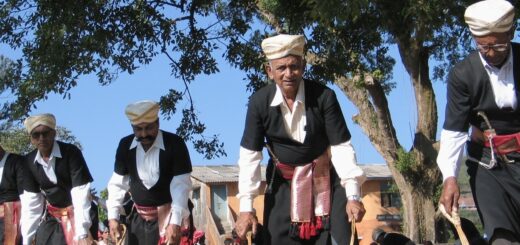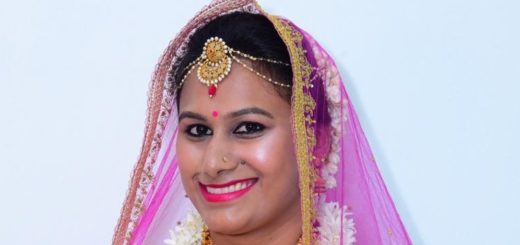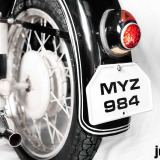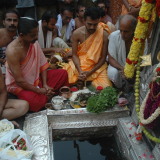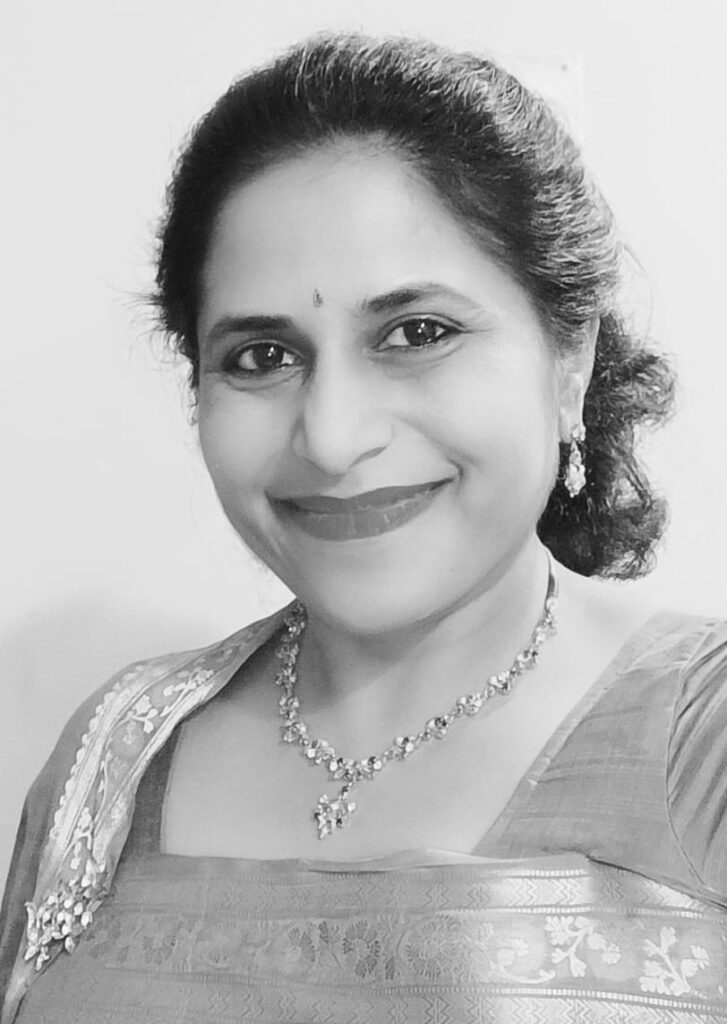
By P.T. Bopanna
My new book ‘Kodava Religion at Crossroads’ which is due for release shortly, has an exclusive chapter on the customary rights of a Kodava (Coorg) woman.
In the chapter penned by Puliyanda Anu Chengappa (in picture), advocate, she has sought to capture the essence of the status of the Kodavathi (Kodava woman) in Kodava society with specific focus on the matrimonial, maintenance, succession and property rights as per Kodava custom.
Anu Chengappa, notes in her article: “A Kodava wedding (mangala) is considered to have concluded with the ‘sambanda kodpo’ or ‘sambanda kooto’ ritual. Sambanda kodpo literally means “giving a relationship” and sambanda kooto literally means “forging a relationship” both these terms refer to a ritual that takes place immediately after the dampathi murtha wherein the agreement that was made at the time of the lagna patti is converted into a contract.
“In short, a Kodava bride becomes a part and parcel of her matrimonial home with rights equal to those exercised by every other member in her matrimonial family. After listing out these rights, the bride’s aruva asks the groom’s aruva “thandira” or “kodthira” meaning ‘have you given’ to which the groom’s aruva answers in the affirmative uttering “thandat” or “kodthat” (given). The groom’s aruva further takes on the responsibility of ensuring the well-being of the bride in her matrimonial home. Similarly, the groom’s aruva lists out the duties and responsibilities of the bride in her matrimonial home and asks who will be responsible to bring back the bride if she returns to her paternal home with complaints or for any other reason and the bride’s aruva accepts this responsibility.
“This consensual acceptance of rights and duties is sealed with the aruvas exchanging ‘sakshi pana’ which literally means “witness money” to seal the affirmation. Thus in legal terms, there is a listing of terms and conditions of the contract of marriage and the sakshi pana is the ‘consideration’ that binds the contacting parties and the people present are witnesses to this oral contract. This sambanda kodpo practice is an example of how amazingly logical and evolved the ancient Kodava customs are, to stand the test of even the present day law of contract.
Maintenance:
“The hallmarks of a Kodavati are dignity and self-respect and to not be beholden to anyone including her husband or her matrimonial family. It is keeping this in mind that the Kodavas follow the ‘kacchi mutt’ concept. Neither the groom nor any member of his family gives anything to the bride. Groom giving gifts to the bride at the time of marriage is alien to Kodava culture. The Kodava bride enters her matrimonial home with her kacchi mutt which is her trousseauconsisting not just her clothes but also all basic essentials ranging from needle and thread to utensils that she would require for her basic existence in her matrimonial home; the idea being that she should not be found lacking in any manner to take care of herself in her matrimonial home.
“Though the Kodavati has rights in her paternal home, asking anything from her thamane is considered an insult to her baakemane as it means that her matrimonial home is not capable of taking care of her, contrary to the assurance given during the sambanda kodpo ritual. Even if a Kodavati is widowed while young, her matrimonial okka ensures that she gets remarried to a male member of the same okka, as it is a strong belief amongst the Kodavas that once a girl is sent her matrimonial okka, it is the duty of the that okka to take care of her till her last breath. If there is no such groom within the okka then the elders of her baakemane themselves look for a suitable partner from another okka and give her away like the daughter of the okka.
Dowry:
“Dowry is unheard of in Kodava society. The Kodavati goes to her matrimonial home not because she is a burden to her parental home or because she has no source of food, shelter or protection and so the husband is not doing her family a favour by marrying her. It is quite the opposite wherein it is the bride’s family doing a favour to the groom’s family by sending her as a gesture of good will and blessing to bring good luck and prosperity to the groom’s family. If the bride’s paternal family gets even a whiff of the son-in-law expecting or demanding anything, they have a right to take back their daughter from the matrimonial home as it only means that her baakemane has failed or is incapable of performing their part of the contract as was agreed upon in the sambanda kodpo ceremony.
Divorce:
“Rights of a Kodavati after divorce revert to the status as was before her marriage. She gets back all her rights in her paternal home. She can remarry and even marry into the same matrimonial okka provided her former husband is not alive. She can even visit her former matrimonial home as a guest.
Remarriage:
“‘Koodavali’ meaning ‘remarriage’ is a very common phenomenon in Kodava society. In the case of a Kodavati, there are three types of remarriage namely (a) remarriage within the same matrimonial okka upon her being widowed, (b) remarriage outside the matrimonial okka upon her being widowed, (c) remarriage upon being divorced.
Property rights:
“The joint family system of the Kodavas in the form of okkas was closely bound to common tenancy of all the members of the okka to the jamma land belonging to the okka. There was no ownership right and so there was no scope for division or alienation of the okka property. What is loosely called partition in the context of jamma lands is a de facto arrangement within the okka of dividing the management of the common property into divisions to be managed by various branches of the family. Survey numbers would be distributed to various kulas or branches of the family and those properties will continue to pass on from generation to generation within that particular branch of the okka. However, all such properties still belong to the entire okka. Unity and indivisibility of the okka being the predominant concern, an unmarried daughter had an equal right in her thamane property. Upon marriage of a daughter, her property rights would open up in her baakemane okka as listed out during the sambanda kodpo ritual. If the daughter returned to her thamane as a widow or as a divorcee after severing ties with her baakemane through the sambanda adko ritual, her rights in her thamane property would be resurrected and there are instances of a portion of her paternal property being earmarked exclusively for her as a source of her livelihood and maintenance.
Note: The above article is a summary of the chapter. For the detailed article, await for the formal release of the book ‘Kodava Religion at Crossroads’.

